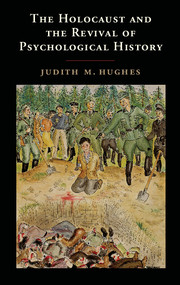Introduction
Published online by Cambridge University Press: 18 December 2014
Summary
How could men – and women – in one of the best educated and economically most advanced countries in the Western world set out to get rid of Jews (and not only Jews)? How could they do it? Similar questions haunt Sebastian Haffner’s Defying Hitler. Written in 1939, after Haffner arrived in London but before the Final Solution was embarked upon, the memoir remained unpublished until the author’s death six decades later. In it, he tried to pinpoint what was happening in the country he had just fled. “The interesting thing about the Nazis’ intention to train the Germans to be persecutors of the Jews throughout the world, and if possible to exterminate them, … is the intention itself…. It is … an attempt to … turn human predatory instincts, that are normally directed against other animals, against members of their own species, and to make a whole nation into a pack of hunting hounds…. [S]hould the central core of the Nazis’ program become a reality, it would amount to a major crisis for humanity.”
In the midst of this moral deterioration, and in its wake as well, Haffner was not alone in pondering the psychological makeup of his compatriots. Works by Wilhelm Reich, Erich Fromm, and Theodor Adorno immediately come to mind. Their books stand as an initial attempt to bring psychoanalysis to bear on historical problems – in short, to write psychohistory – an attempt that in the aftermath of the war had a wide audience.
- Type
- Chapter
- Information
- Publisher: Cambridge University PressPrint publication year: 2014



